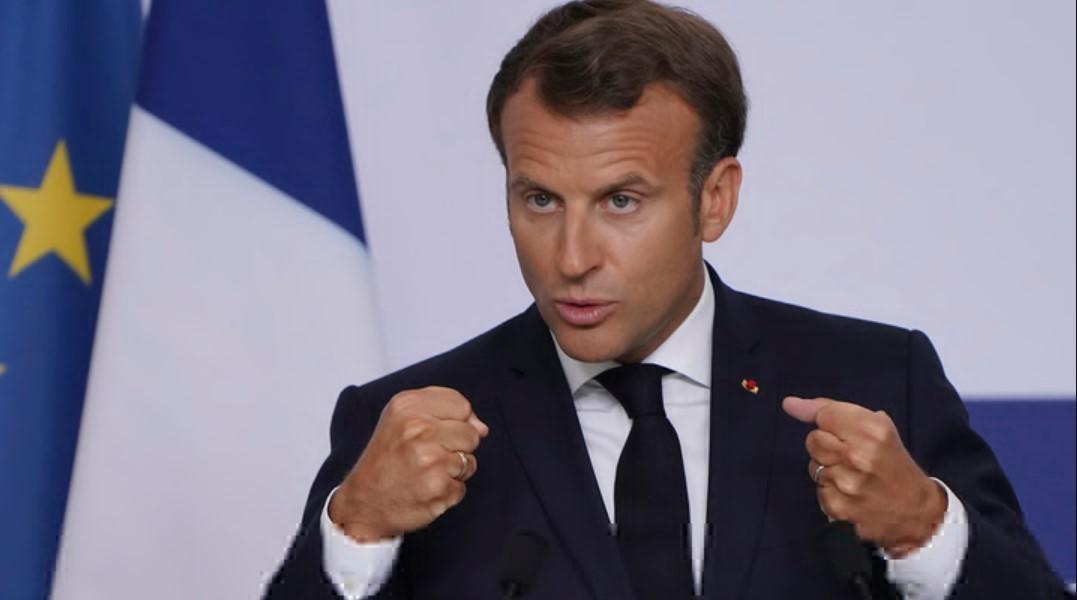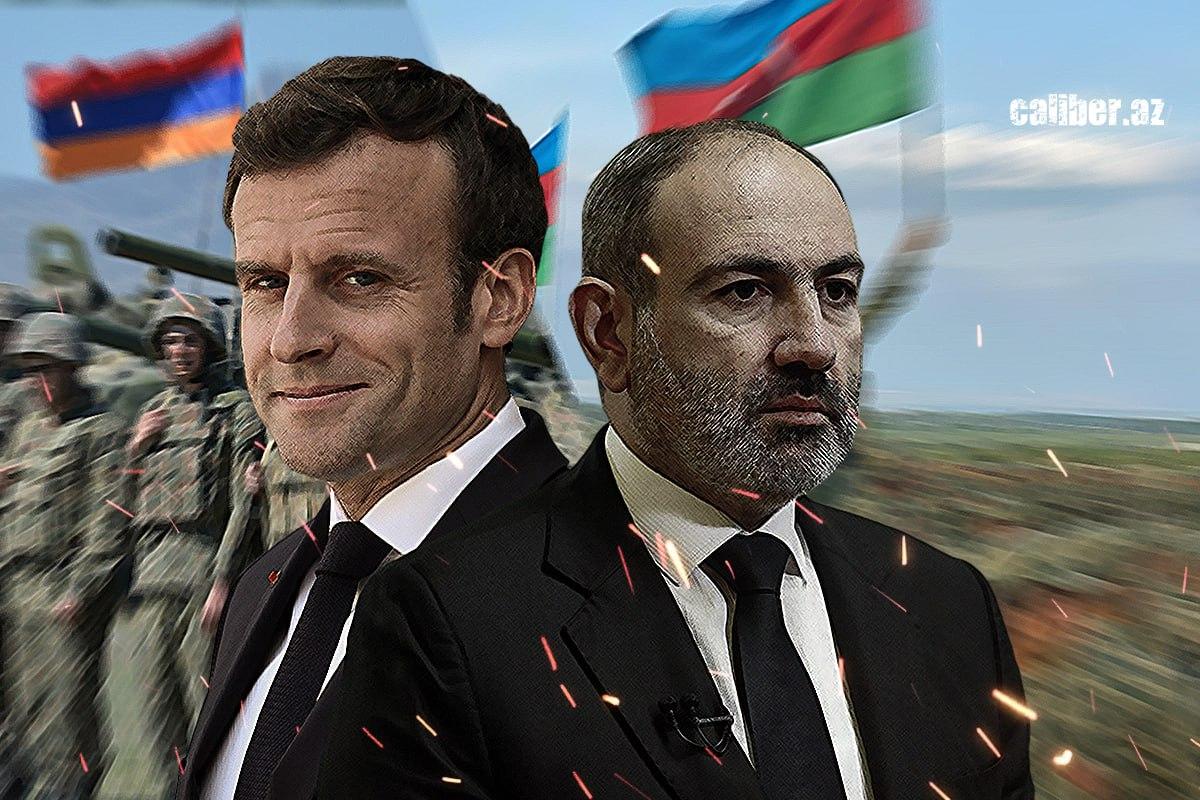Macron acknowledges Azerbaijan’s strength From deception to recognition
On January 6, French President Emmanuel Macron, speaking at the annual conference of ambassadors in Paris about his foreign policy priorities for 2025, decided to once again "shine" with his readiness and ability to utter complete nonsense. His remarks were essentially an attempt to shift blame for his own failures onto Azerbaijan. Despite his intentions to undermine the country, such statements inadvertently highlight the remarkable rise in Azerbaijan's power.
This rhetoric would not have warranted attention if not for the blatant slander directed at the state of Azerbaijan. Specifically, Macron falsely claimed that Russia had "changed its alliances" and "supported Azerbaijan's actions" in Karabakh. He further asserted that this shift occurred because Armenia now has a determined prime minister who no longer concedes to pressure.
Of course, it is well known that Armenian Prime Minister Nikol Pashinyan is a protege of the French president. However, why would Macron choose to portray himself in such a pitiful light by making truly absurd statements? What exactly did he mean by "Russia supporting Azerbaijan's actions in Karabakh"? An honest and clear answer to this question from Macron is unlikely. For him, lying is as easy as drinking a glass of water.

It’s important to remember that during the 44-day war, military aircraft from Russia continuously flew into Armenia, delivering weapons and equipment. Moreover, it is easy to verify that the Armenian army fought against Azerbaijan using exclusively Russian weapons—Russian tanks, armoured personnel carriers (APCs), and infantry fighting vehicles (IFVs). A significant portion of these military assets was showcased at the Victory Parade in Baku following the end of the 44-day war. They are also displayed at the Military Trophies Park in Baku, including Russian tanks and IFVs marked with the letters Z and V—symbols that were later seen after Russia's military invasion of Ukraine. In this context, Macron’s claims are blatantly false.
It is also worth reminding Macron that during the 44-day war, political support for the leaders of the Karabakh separatist regime came from certain Russian politicians, including State Duma deputies. This is not only about Konstantin Zatulin, but also figures like Vitaly Milonov and other notorious characters. Many Russian propagandists were also involved. A prime example is Semyon Pegov, who spent day and night in the separatist stronghold, spreading blatant fake news about the course of the war. There were many others like Pegov, working for both Russian and Armenian propaganda. Macron is fully aware of this, but he consciously lies, which is not surprising.
During the 44-day war, the French president himself became a purveyor of Armenian fake news. He falsely claimed that Azerbaijan was supported by "militants from the Middle East." When Azerbaijani President Ilham Aliyev demanded evidence of these accusations, Macron simply retreated from the informational battlefield. He could not help Armenia for the same reason that neither the U.S. nor Russia, nor any of the co-chair countries of the OSCE Minsk Group, could: they understood that the war was taking place on internationally recognized Azerbaijani territory.
No one had the right to send their troops to support Armenia, especially since Azerbaijan had previously achieved the adoption of four United Nations Security Council resolutions, which called for the immediate withdrawal of Armenian armed forces from the occupied territories of Azerbaijan. This is the truth. What the French president is saying, however, is nothing more than the pathetic ramblings of a loser. He, of course, tried to support Pashinyan even after the 44-day war. As we remember, the French Senate adopted a resolution recognizing the "independence" of the so-called "Artsakh." However, the value of this resolution was virtually worthless. After the Azerbaijani Armed Forces carried out a brilliant one-day counterterrorism operation in the Karabakh region of Azerbaijan, even Armenia stopped referring to that piece of paper.
Indeed, Macron and his team attempted to condemn Azerbaijan for... restoring its sovereignty and territorial integrity. Yet, even here, Monsieur Macron faced a resounding failure. He simply underestimated Azerbaijan’s real diplomatic power. The country holds significant influence across numerous nations on various continents, making it impossible for a political figure like Macron, who has found himself in the French presidency by mere chance, to challenge Azerbaijan’s historic victories.

Thus, Macron is left to concoct obvious nonsense in his defence, such as his claims about the "determined" Pashinyan, who supposedly did not submit to Russia. It’s almost embarrassing to remind him that the entire Armenian political elite called on Russia for assistance during the 44-day war precisely because they saw Armenia as, in the words of Boris Gryzlov, Russia’s stronghold in the Caucasus. At that time, Armenia wasn’t even considering a "freeze" of its membership in the Collective Security Treaty Organization (CSTO).
It is also worth reminding Macron that since 2018, when power in Armenia changed hands, trade between Armenia and Russia has increased fourfold by 2024. According to data from Armenia's Statistical Committee, while trade turnover with Russia in 2018 was just over $1.9 billion, by 2023, it had nearly reached $8 billion. Some forecasts suggest that by the end of 2024, trade turnover between Armenia and Russia could range from $14 to $16 billion. In light of this, how can one not laugh at Macron’s claim that Pashinyan, with his once bearded and now smooth-shaven face, is "the first determined prime minister of Armenia who does not submit to Russia"?
Macron also accused Azerbaijan of "destabilizing" France. This is a complete and unequivocal acknowledgement of Azerbaijan’s power, as it supposedly has the ability to "destabilize" a nuclear state, one of the five permanent members of the UN Security Council. Yes, Macron claimed that Azerbaijan, with its population of just 10 million, is capable of "destabilizing" France, with its nearly 70 million citizens, including its overseas territories. One can now wait for the day when, in one of his future speeches, Monsieur Macron will blame Azerbaijan for France's budget deficit, which in 2024 is expected to be around 6.1% of GDP.
The truth is that, according to a recent public opinion survey, more than 60% of French citizens are in favour of Macron's resignation. Since September 2024, when such a survey was first conducted, support for his resignation has increased by 7%. In a study carried out by the Odoxa-Backbone sociological service on January 2-3, 62% of respondents described Macron's leadership style as authoritarian. Checkmate, Monsieur "Loser!" The French themselves have given a very clear assessment of their president. In this context, the attempts of Monsieur Macron, now openly referred to as a "lame duck," to shift the blame for his failures onto Azerbaijan appear especially disgraceful and pathetic.








